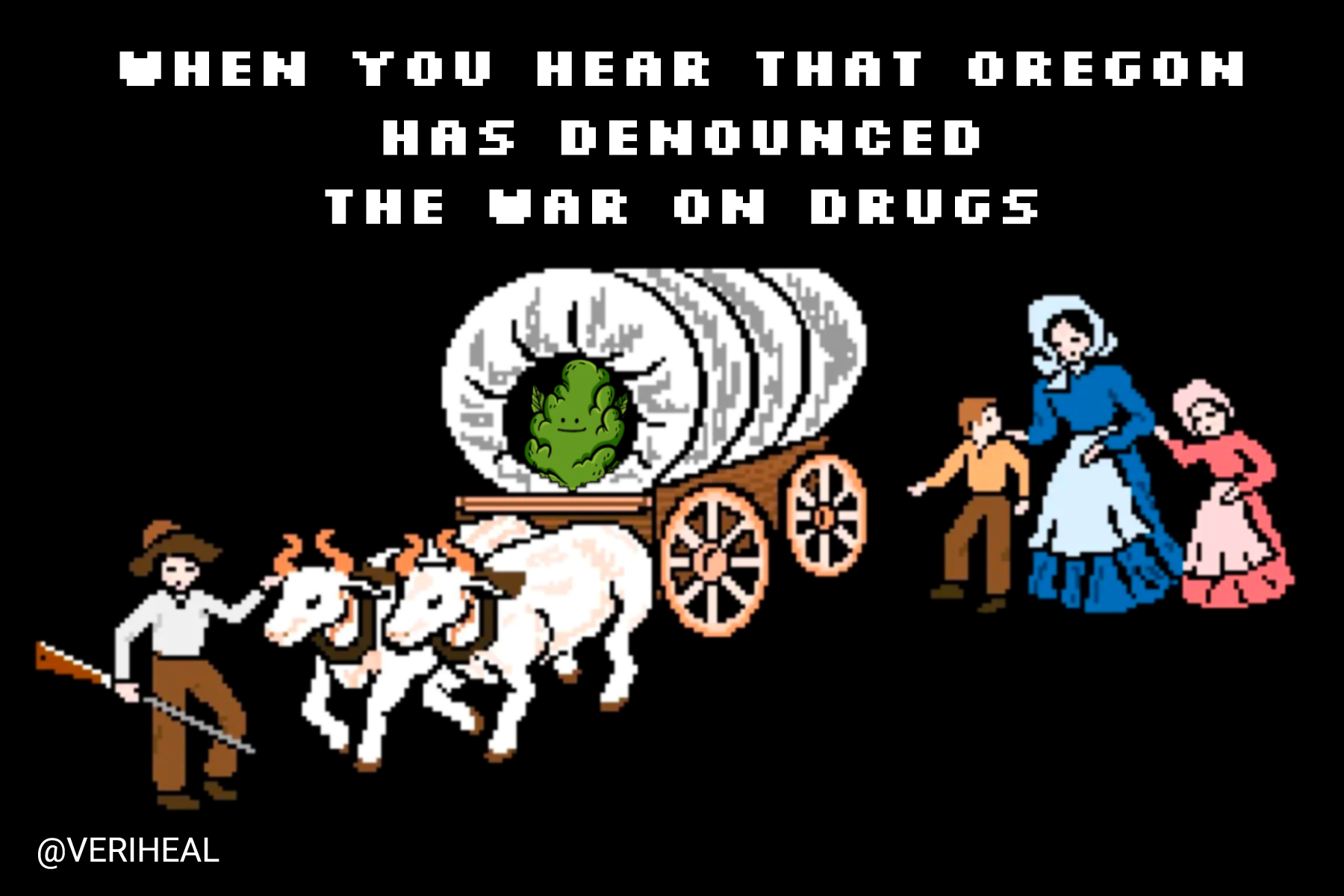Oregon has a powerful history as a leader in cannabis reform. When you think of progressive states, you might think of Colorado or California, but it was Oregon that was first to decriminalize possession of small amounts of cannabis back in 1973, setting the bar for all the other states that have decriminalized since. Nowadays, cannabis is fully legal in Oregon, both for medicinal and adult recreational use. And the state has continued to blaze trails in the effort to both legalize cannabis and change the discourse around it. In 2017, cannabis dispensaries in Oregon began offering home deliveries, a convenient service that allowed users to experience a chill smoking session without worrying about getting out if they needed more supply while also serving to keep impaired drivers off the streets. In late 2020, Oregon decided it was ready to take on its toughest challenge yet and to fight the negative stigma surrounding all hard drugs—not just cannabis.
Oregon Takes On the War on Drugs
The War on Drugs has been a failure in part because it has been punitive rather than rehabilitative. Drug use has been viewed as a crime like any other, with users treated the same way other criminals would be—as people who had made bad decisions that were a menace to society. But in recent years, people have begun to view this a little differently, and with a lot more accuracy. We know, for example, that cannabis use doesn’t correlate in any significant way with violent crime. Many cannabis users partake of the substance for medical reasons—they live with chronic pain, or with seizures, or anxiety that renders them unable to live a normal life. Should we treat such people as criminals, put them in jail, for taking something that allows them to live comfortably and improves their quality of life?
And even those who aren’t using cannabis medically—recreational users—are often just chill people looking for a way to relax in the privacy of their own homes. To equate this practice with violent crime is egregious and wrong. It’s a truth that has begun to gain acceptance, not just in Oregon, but on the national level. But now Oregon is broadening decriminalization to apply, not just to cannabis, but to all drugs.
Why You Should Get Your Medical Marijuana Card
Veriheal has satisfied millions of patients nationwide by giving them access to these benefits
- Larger purchase limits
- Peace of mind
- Enhanced legal protection
- Access to higher potency strains
- Save up to 25% on cannabis purchases
- Skip the line at the dispensary
Many Wonder if This a Good Thing?
Obviously, most narcotics aren’t like cannabis—harmless or even helpful. No one is using cocaine for their health, for example. But Oregon’s Measure 110 passed this most recent election cycle and decriminalized the possession of small amounts of all drugs. Why?
The answer is that Oregon officials have decided it’s a better use of time and resources to treat drug use as an epidemic instead of a crime. Those in possession of small amounts will now face manageable fines—in the $100 range—instead of jail sentences and criminal records. They will be connected with services to help them break the addiction cycle and get back on their feet.
Oregon’s addiction recovery centers will be funded by tax income from the sale of cannabis—just one more way legalized cannabis is contributing to a stronger, more powerful society.
Though not everyone in Oregon was on board for decriminalization—some district attorneys opined that it would lead to widespread acceptance and normalization of dangerous drug use—the measure passed. Oregon joins the countries of Portugal, the Netherlands, and Switzerland as being at the forefront of narcotics decriminalization. We hope to see it go well, and that—as has happened in the past—more states will follow their example.
Author, Share & Comments
















